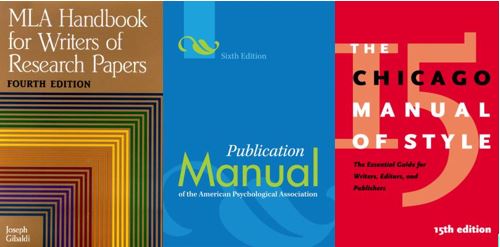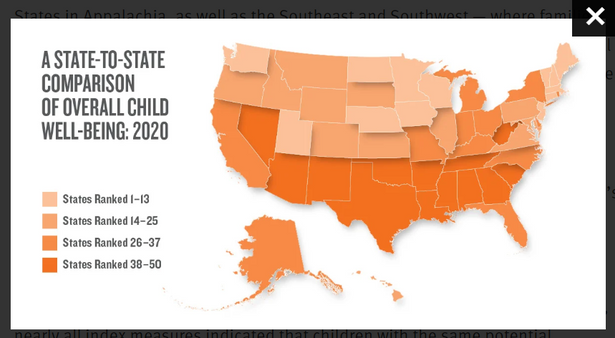News Archives
Featured Tutorial: Citing Business Sources
 If you need help citing sources for your final projects or assignments, Pardee librarians have created a Citing Business Sources tutorial with sample Chicago Style, MLA Style and APA Style citations. The Chicago Manual of Style is also available online.
If you need help citing sources for your final projects or assignments, Pardee librarians have created a Citing Business Sources tutorial with sample Chicago Style, MLA Style and APA Style citations. The Chicago Manual of Style is also available online.
If you have any questions, please contact us at pardstf@bu.edu.
Almanac of Higher Education
Each year, the Chronicle of Higher Education publishes a special report called the Almanac of Higher Education. The Almanac features a unique collection of data and analysis, including focus areas such as faculty, students, finance, outcomes, and many others that are open for you to explore. There is a tremendous amount of information and data, making this source particularly useful for those studying many aspects of higher education.
Access for current Boston University students, staff, and faculty is available at 2020-2021 Almanac.
Pardee Library Research Guides
 Did you know that Pardee Library has several Research Guides and Tutorials available to help with your research? For example, if you need help finding data, take a look at the Business & Economic Data Sources guide. Our newest research guide is on African Americans in Business and Entrepreneurship and one of our newer tutorials is on Business Case Studies.
Did you know that Pardee Library has several Research Guides and Tutorials available to help with your research? For example, if you need help finding data, take a look at the Business & Economic Data Sources guide. Our newest research guide is on African Americans in Business and Entrepreneurship and one of our newer tutorials is on Business Case Studies.
If you have any questions, or need help with your research, please contact us at pardstf@bu.edu.
Marketing Resources at Pardee Library
 Pardee Library has many resources available to help you develop your marketing plan, such as market research reports from Mintel, consumer product usage data from University Reporter, advertising expenditure data from Ad$pender and articles from industry publications. These resources and many others are listed on the Marketing research guide available on the Pardee Library page.
Pardee Library has many resources available to help you develop your marketing plan, such as market research reports from Mintel, consumer product usage data from University Reporter, advertising expenditure data from Ad$pender and articles from industry publications. These resources and many others are listed on the Marketing research guide available on the Pardee Library page.
For a complete list of our research guides, please consult the Pardee Library Research Guides page. If you need assistance with your research, please contact the Pardee Library Reference Desk.
2020 Kids Count Data Book

The 2020 Kids Count Data Book is newly available for use by researchers. Each year, the Annie E. Casey Foundation releases this important report about children in the United States. This edition of the Data Book assesses trends in the overall health and well-being of children before the coronavirus pandemic began, because of the lag time in statistics. In addition to offering summaries and select highlights, the website features an interactive map detailing state rankings in
- overall child well-being,
- economic well-being,
- education,
- health, and
- family and community.
The full report is available freely as a pdf download. Information on how the report is created, including definitions and data sources, is available towards the bottom of the website.
A highlight reads, "policymakers, researchers and advocates can continue using this information to help shape their work and build a stronger future for children, families and communities."
Top 4 most useful search tips
These search tips will work in many different databases, including BU Libraries Search, Google, and many of our subscription sources like JSTOR.
1. Surround your terms in quotes if you're looking for an exact title or some meaningful phrase.
"review of educational research"
2. There are usually many slightly different words to describe one basic concept, so put synonyms in your search.
cars OR automobiles
3. Group like terms in parenthesis with OR, and capitalize the operators AND, OR, and NOT.
(cars OR automobiles) AND (hybrid OR electric)
4. Try truncation. A search for teach* retrieves results for (teach OR teaches OR teaching OR teacher, etc).
teach*
Going beyond these simple tips is also possible in many of our subscription databases. For instance, did you know that in PsycInfo, you can limit a search to show only results related to "Adolescence (13-17 yrs)"?
For more tips, please search or browse Frequently Asked Questions through our Ask a Librarian service.
Pathways to full text access
Have you ever found a search result without full text attached? It can be frustrating. Try this!
First, identify the resource type of the item. Is it an article, book, dissertation, an association report, or something else? Often, knowing the type will help guide you to the next place to look for full text access!
Try the methods below for various resource types.
- If it is an article, keep the citation handy (open a new browser tab, for instance) and search for the journal name in BU Libraries Search. Then look closely at the journal record for our full electronic or print access to that source - and keep in mind the article's date.
- If it is a book - hopefully we have it already in BU Libraries Search. If not, try making a suggestion that we purchase it as an eBook.
- If it is a dissertation, look in our databases list for ProQuest Dissertations and Theses; full text is often available there.
- If it is an association report or government document, don't forget to try Google; many of these are available freely.
If you're still having trouble finding what you need, contact a librarian--we're here to help!
Featured database: Education Week

Education Week is a high quality, nationally popular source focusing on K-12 news and education policy. Our full premium access to edweek.org includes the latest news (updated daily), research, and commentary from the K-12 world. Brief ed-tech videos can be shared and embedded, and special reports and research on special topics are available. Using the Education Counts section, faculty and students can create and download custom tables of state-level K-12 education data. Older content and web-only updates are exclusive to EdWeek.
Date coverage: 1981-present.
Google Scholar Releases 2020 Metrics

Google has released the 2020 edition of Google Scholar Metrics. This ranking of important scholarly journals is available across many disciplines and relevant subcategories. You can find nearly all of the ranked journals in BU Libraries Search. For more details on the 2020 release, including their important inclusion guidelines, see this blog announcement from Google.
Our Research Impact guide provides more information on Google Scholar Metrics and on alternative metrics, such as the popular "impact factor" (see the Journal Metrics page). This guide also details other types of scholarly measures, such as article metrics, that may also be of interest.
Be Antiracist: Read, Learn, Change
BU Libraries has compiled a guide highlighting antiracism books and other materials available electronically for BU faculty, students, and staff. The selections and the organization of the new list – Be Antiracist: Read, Learn, Change – are based on “The Anti-Racist Reading List (38 books for those open to changing themselves, and their world),” published in the The Atlantic by Ibram X. Kendi, Founding Director of the BU Center for Antiracist Research.
Categories include: Definitions; Memoires; Essays; Slavery; Jim Crow; Civil and Human Rights; Mass Incarceration; Police Violence; Health and Housing; and Voting.
Additional titles include recommendations from former BU Libraries Ambassador Solange Hackshaw (COM/CAS, '21), originally published by @bulibraries on Instagram.
Please send your suggestions to Paula Carey pac@bu.edu.

